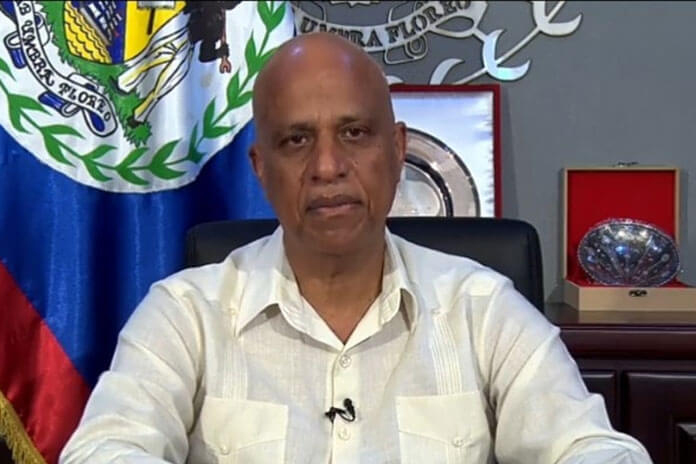BELIZE CITY, Tues. Mar. 31, 2020– Following a press statement by Prime Minister Dean O. Barrow yesterday, in the wake of the confirmation of Belize’s third positive case of the coronavirus, the government called a press conference this morning in Belize City to explain measures that would be put in place as part of the national state of emergency that Barrow announced would be in effect for one month in an effort to fight against the COVID-19 pandemic.
The national state of emergency, which will lead to an almost complete shutdown for most businesses in the country which are not considered as essential services, will be accompanied by a curfew which will run from 8:00 p.m. to 5:00 a.m. daily. Belizeans are being asked to stay in their homes and should only come out during the daylight hours to buy essentials.
So, essentially, personal movement will be severely restricted and businesses which are not designated as providing essential services will be closed, as Belize joins other countries that have implemented a complete shutdown to prevent the spread of COVID-19.
Prime Minister Barrow and Attorney General Michael Peyrefitte provided the details about the state of emergency.
Barrow explained that the list of businesses that must be closed would be expanded. “There is that first category of businesses that must close, a category, I repeat, that will have to be expanded in terms of the number of businesses required to be closed. It has to be expanded from what it currently is. That’s number one,” Barrow said.
“Number two, then, will be the category of businesses that are allowed to open and to conduct their activities during prescribed daylight hours. There will be some differentiation there; for example, government offices will close at 4:00; the AG will tell you the hours of closing for other businesses that are allowed to remain open,” Barrow said.
“And finally, there is going to be the category of essential services. The distinction between the essential services and the generalized category of businesses allowed to remain open is that essential services are going to be able to operate during curfew hours when the other regular businesses that are open will not be able to operate,” Barrow continued.
Attorney General Michael Peyrefitte, in his outline of the curfew rules, said, “During the hours of 8 p.m. and 5 a.m. the next day, everything will be closed, with a few exceptions: People will not be allowed to wander on the streets or be on the streets except for a few designated people. During the day hours, certain businesses will be open; certain businesses will not be open. If you are going to be moving during the state of emergency, you have to be moving with a purpose. You can’t just be taking a stroll or walking down the street or going to see a friend. You must have a specific purpose for which you are moving, and the police would be able to stop you and question you as to what is your specific purpose, and if your specific purpose doesn’t match what is in the regulation, the police may arrest you without warrant under the regulations, and you could be fined and confined.”
The Attorney General further explained, “You can only move during the day; this is from 5:00 a.m. to 8:00 p.m., to purchase essential needs, to get medical or veterinary attention, medical emergencies, or you are an essential worker going to and from work.
“Included in these are security guards patrolling, agricultural or factory workers or other similar operations requiring the movement of personnel for the effective conduct of business or operations. You can do these during the non-curfew hours, but you must be moving for those purposes.”
Attorney General Peyrefitte then stated, “These are the people who will be allowed to be out and about even during the curfew hours, which is, as we said, 8 p.m. to 5 a. m. the next day: government offices, medical and auxiliary services, private security services, public utility workers, social workers authorized to respond to emergencies, sanitation workers, productive sectors which involve people who have to produce agricultural products and potable water.”
Judith Alpuche, the CEO in the Ministry of Human Development, who is also on the COVID-19 National Task Force, explained that the persons who would be allowed to be on the streets will be given passes so that they can move without the threat of being arrested by the police.
“…in terms of some of the operations of passes … so how do the security forces ensure that the people on the street, particularly during curfew, are the ones that are authorized to be there? Just because you are employed by some service doesn’t mean that you should be on the streets. In terms of the passes, etc., that will authorize and help to identify them to the security forces who will be enforcing — that’s something that is being worked on very diligently by the Ministry of Labor leading the charge there, and those will be issued by the EOC,” Alpuche said.
At the time of the press conference, some of the regulations were still not finalized, as they were still being drafted.

